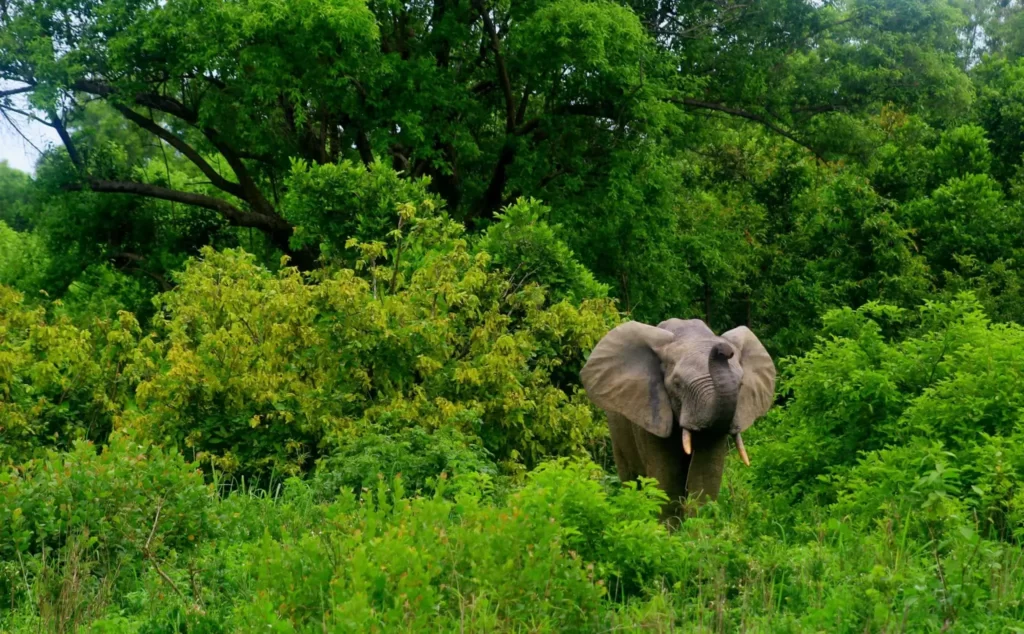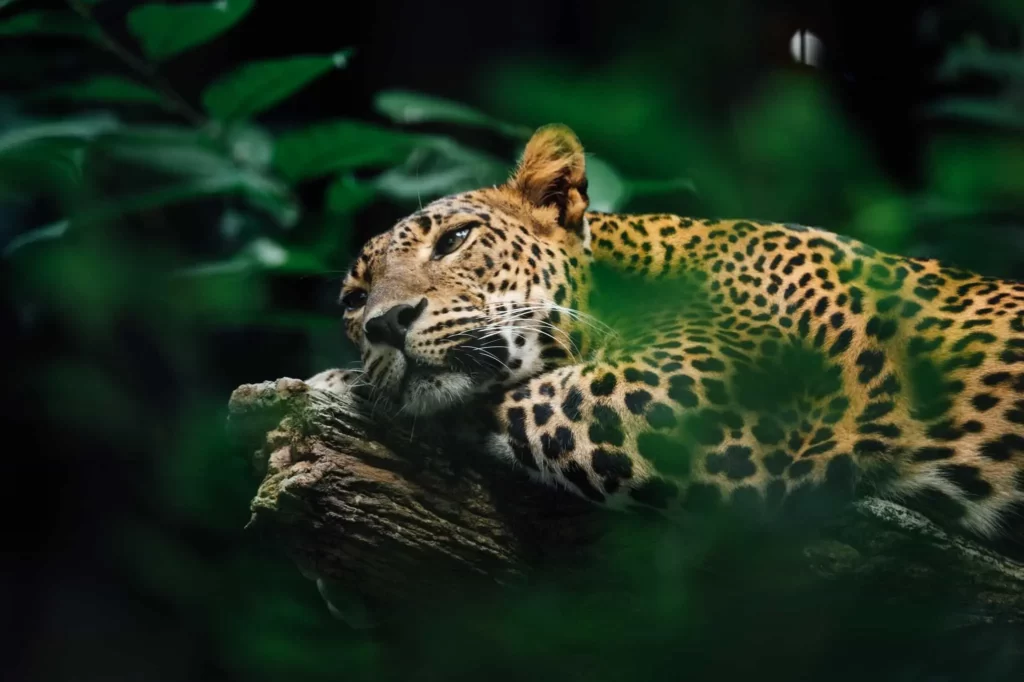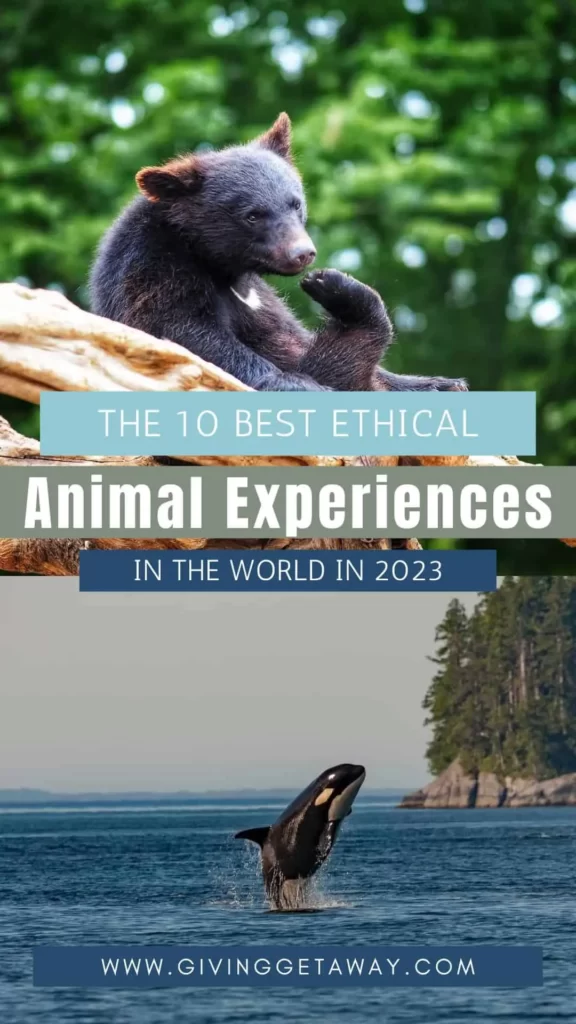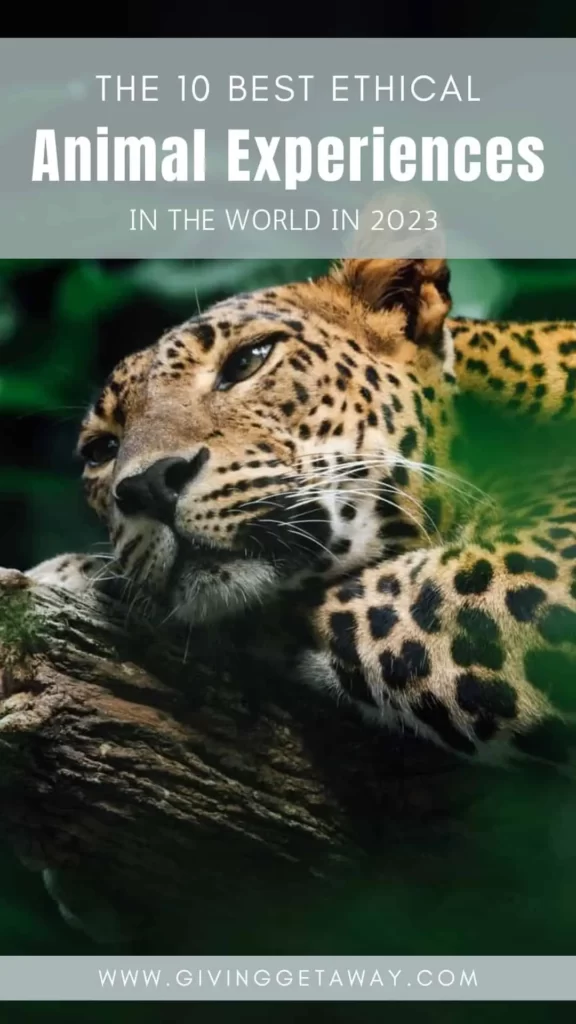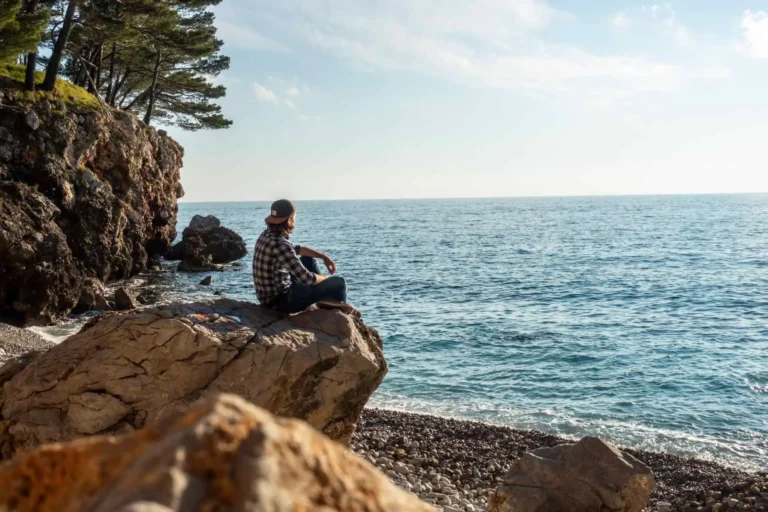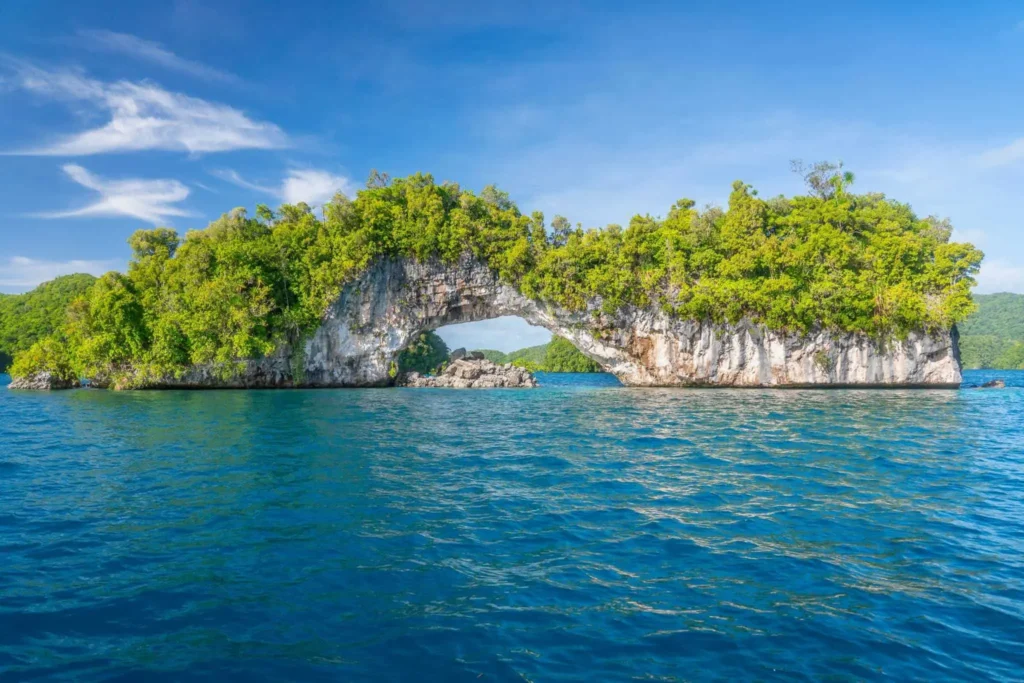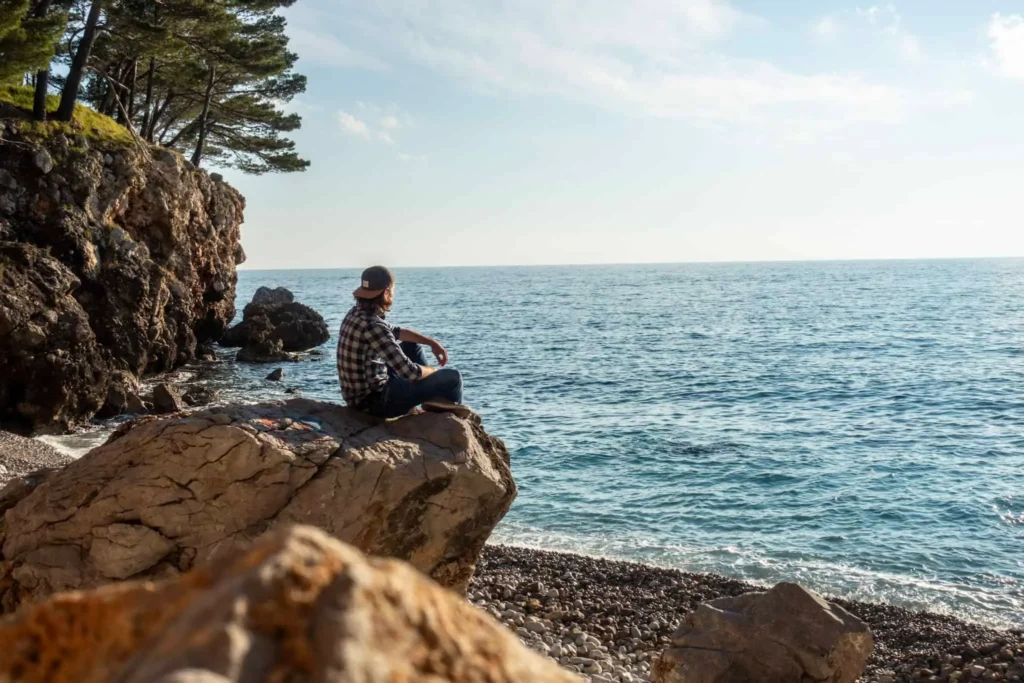| This post may contain affiliate links. Whenever you book or buy something through one of these, Giving Getaway gets a small commission, of which 100% will be donated to charity, without any extra cost to you! |
Although the world develops a growing consciousness towards responsible tourism, still too many wildlife tour companies and self-proclaimed rescue centers and animal sanctuaries only have one goal: profit maximization. That’s why in this blog post, I would like to introduce to you 10 of the best ethical animal experiences in the world that offer unique opportunities to observe and learn about our fellow creatures without causing harm or exploitation.
If you would like to learn more about what exactly it is that makes an animal experience “ethical”, feel free to read my post “Ethical Animal Tourism: A Guide To Responsible Wildlife Encounters”. I applied these guidelines and dug deep to find animal experiences that can be enjoyed without feeling guilty. So if you’re an animal lover looking for unforgettable experiences that align with your values, read on!
1) Swim With Penguins at Boulders Beach, South Africa
Located in Cape Town, Boulders Beach is home to a colony of the endangered African penguin. The unique thing about this beach is: it offers you a chance to swim with these incredible creatures while also supporting conservation efforts!
To ensure the safety of both visitors and penguins, rangers patrol the area daily and everyone is required to maintain a three-meter distance from the penguins at all times. That means you will technically not swim with the penguins, at least not side by side. But still, it is possible to observe them up close and swim at the same beach. A unique, unforgettable, and ethical experience!
Swimming with the penguins is pretty much the only water activity allowed at Boulders Beach as motorized engines are not allowed in the area to keep the penguins safe. But if swimming isn’t your thing, there are boardwalks where you can see these adorable creatures without getting wet. These shallow parts of Boulders Beach also serve as safe areas for little kids who want to take a dip.
The tourism in this area used to be managed by the community but now its care has been handed over to Cape Peninsula National Park for conservation and protection. This means that your visit will help support efforts towards protecting these amazing animals while at the same time enjoying a memorable wildlife encounter.
2) Make a Tour Through the Bear Sanctuaries in Laos
When it comes to bear sanctuaries, the Free the Bears sanctuaries in Laos are an absolute must-visit. Founded by Mary Hutton as a not-for-profit charity in 1995, Free the Bears has rescued over 950 bears of vulnerable species from bile farms and illegal wildlife trade in Asia.
The organization operates sanctuaries in Cambodia, Laos, and Vietnam while also working with governments to strengthen laws against bear bile farming. Free the Bears promotes synthetic and herbal alternatives to bear bile in traditional medicine while raising awareness about the cruelty inflicted upon bears.
The Bear Rescue Centre at Tat Kuang Si offers a two-hour behind-the-scenes tour where you can hear heart-warming stories about rescued moon bears and even help prepare food for them. Located just 30km south of Luang Prabang, this sanctuary provides a safe haven for rescued bears from bile farms and illegal wildlife trade.
For those who want more time with these fascinating creatures, there’s another option – a three-hour tour at Luang Prabang Wildlife Sanctuary. This multi-species sanctuary houses sun bears, moon bears, red pandas, and macaques and allows visitors to meet Mary Christmas (a resident black bear).
Exploring the Free the Bears sanctuaries offers an exciting and unique opportunity to connect with these fascinating creatures while actively contributing to their well-being. It is undeniably an ethical animal encounter that will leave a lasting impression.
3) Visit the Sheldrick Elephant Orphanage in Nairobi, Kenya
When it comes to ethical animal experiences, a visit to the Sheldrick Elephant Orphanage in Nairobi is an absolute must. Established in 1977 by Dame Daphne Sheldrick, this organization is dedicated to the conservation and protection of wildlife and habitats in East Africa. One of their primary missions includes anti-poaching programs aimed at saving elephants from extinction due to human/animal conflict.
The elephant orphanage serves as a nursery unit for newborn elephants who have been separated from their families due to tragic circumstances such as poaching or habitat destruction. Visitors can sponsor an elephant for just $50 per year and support the trust’s mission by purchasing items on their wishlist which include milk for the babies and wire cutters to free animals caught in snares.
One of the best things about visiting the Sheldrick Elephant Orphanage is that it offers an authentic and ethical animal experience. Visitors are welcomed to the orphanage for a limited hour each day, offering an opportunity to witness the orphans’ activities from a designated area. Behind a rope barrier, you can observe these young ones engaging in playful interactions, nurturing, and feeding sessions.
In light of recent concerns regarding ethical tourism practices around wild animals captive tourism industries have faced increased scrutiny over potential animal abuse allegations. However, this organization provides a sanctuary where visitors can enjoy watching baby elephants play without endangering their welfare or environment.
4) Observe Jaguars at the Onçafari Conservation Project, Brazil
If you are looking for an ethical animal experience that is both thrilling and responsible, then the Onçafari Conservation Project in Brazil is just right for you. This ecotourism initiative offers you a unique opportunity to observe jaguars in their natural habitat while supporting conservation efforts.
The project’s mission is to habituate jaguars and maned wolves to the presence of safari cars without disrupting their natural behavior. This approach keeps these magnificent animals wild and free, allowing them to thrive in their natural environment without feeling threatened.
Onçafari offers guided tours led by experienced professionals who provide valuable insights into the behavior and ecology of these beautiful creatures. And it’s a real success story! Visitors have had over 3,400 jaguar sightings since the project’s inception in 2011.
What sets Onçafari apart from other wildlife experiences is its commitment to preservation. The project works closely with government organizations such as CENAP and ICMBio to develop sustainable conservation practices that benefit both the animals and local communities.
Furthermore, income generated from ecotourism benefits residents and landowners who might otherwise turn to activities harmful to wildlife, such as poaching or deforestation. Observing jaguars at the Onçafari Conservation Project is not only an unforgettable experience but also an ethical one that contributes directly towards preserving Brazil’s biodiversity.
5) Visit the Tasmanian Devil Unzoo, Australia
When it comes to ethical animal experiences, the Tasmanian Devil Unzoo is one of the best in the world. This innovative concept was developed by Jon Coe and Ray Mendez back in 2005, to move zoos away from traditional designs that rely on cages and barriers. The result is a place where animals have more dignity, freedom, and self-determination, while visitors can learn about wild animals, plants, and ecosystems through interaction with natural habitats.
The Tasmanian Devil Unzoo is a fully-functioning example of what could become the zoo of the future. It encourages wild and resident animals to interact with their environment, providing an alternative to traditional zoos. Moreover, it offers you personal and memorable encounters with wildlife and nature without harming any animal.
The unzoo consists of four unique habitat areas for Tasmanian devils as well as other native Australian species like wallabies, kangaroos, pademelons echidnas, etc., all of which can be hand-fed by visitors under expert supervision.
In addition to meeting native animals up close, you can spot nearly 100 bird species identified on the property while exploring fern-lined streams filled with native fish freshwater lobsters and wild eel nesting boxes set out specifically for ring-tailed possums. Guided nature walks with expert guides are also a regular feature at the unzoo.
The Devil Den provides an innovative nose-to-nose encounter with a devil, while Birds of the Bush presentation allows you to hand-feed wild parrots and honeyeaters. All in all, there is so much to see and do in the Tasmanian Devil Unzoo that you will easily spend most of your day exploring this amazing place.
6) Gorilla Trekking in Bwindi Impenetrable Forest, Uganda
If you’re looking for an ethical animal experience, you should consider gorilla trekking in Bwindi Impenetrable Forest in Uganda. Only found in the border areas of Rwanda, Uganda, and the Democratic Republic of Congo, mountain gorillas are a rare sight to behold. In fact, over half of all mountain gorillas call Bwindi Impenetrable Forest their home.
Gorilla trekking is a popular tourist activity in the region. However, it’s not just about entertainment – it’s also organized to protect gorillas and benefit the local community. Permits are limited to one group of up to 8 people per day and gorilla families are visited in rotation.
The permits may seem pricey at $700 in Uganda and $1,500 in Rwanda, but the income from these permits is used for species conservation efforts like combating deforestation and poaching as well as employing park rangers and veterinarians. Additionally, 20% of income goes directly toward surrounding communities for investments in education, water sources, and electricity.
When you visit Bwindi Impenetrable Forest for gorilla trekking, you can expect to receive information from rangers about how best to behave around the animals. You’ll watch the gorillas as silent observers while receiving a trekking certificate upon completion. Visiting them face-to-face will surely leave you with unforgettable memories.
Gorilla Trekking has contributed significantly towards increasing their population from 620 to over 1,000! However certain habitats have been endangered due to excessive tourism. It’s important to note that the Uganda Wildlife Authority issues permit for gorilla trekking, so you can rest assured that your visit is a responsible one.
7) Go on a Lion Safari in Gir National Park, India
Gir National Park in India is not only known for its incredible biodiversity but also for being the only place on Earth where Asiatic lions roam free. If you’re an animal lover seeking an authentic and responsible wildlife encounter, a lion safari in Gir National Park is an experience you won’t want to miss.
The park’s commitment to conservation and ethical practices is commendable. To ensure the safety of both humans and animals, every visitor is required to obtain a permit and participate in guided safaris. These measures help minimize disturbance to the natural habitat and allow the lions to thrive undisturbed. By strictly adhering to the park’s code of conduct, you contribute to the long-term preservation of these majestic creatures.
As you traverse the park in a specially designed vehicle, guided by experienced naturalists, you’ll have the opportunity to observe the magnificent Asiatic lions in their natural habitat. These incredible predators, with their distinctive manes and powerful presence, are truly a sight to behold!
But the safari experience in Gir National Park goes beyond just lions. The park boasts a remarkable array of flora and fauna, including Indian leopards, Indian cobras, sloth bears, and numerous species of deer and antelope. Birdwatchers will be delighted by the park’s avian diversity, with over 300 species of birds to marvel at.
By choosing a lion safari in Gir National Park, you actively support responsible tourism and contribute to the conservation efforts aimed at protecting these endangered species. Your visit helps generate revenue that goes back into safeguarding the park’s fragile ecosystem and promoting sustainable practices. It is a meaningful way to appreciate wildlife ethically while leaving a positive impact.
8) Observe Marine Life at Great Barrier Reef, Australia
The Great Barrier Reef is one of the world’s most precious natural wonders. It is home to a vast array of marine life, including over 1,500 species of fish and 400 types of coral. However, this delicate ecosystem faces many threats to its survival. And if you were following the news, you may have heard that tourism is one of the greatest threats to this natural wonder.
The truth is: tourism has played both a positive and negative role in the protection of the reef. While it brings awareness to its struggles and how we can combat climate change, it also contributed to environmental degradation. But fortunately, it is possible to enjoy the wonders of the Great Barrier Reef without harming it.
When booking tours or activities on the Great Barrier Reef, look for operators with ecotourism certification issued by GBRMPA (Great Barrier Reef Marine Park Authority). By choosing eco-accredited tour operators such as Reef Magic and Adrenalin Snorkel Dive who prioritize responsible tourism practices, you can easily observe marine life without disturbing their natural habitat, 100% guilt-free!
While at the reef, you should always make sure to follow the Responsible Reef Practices guidelines which include avoiding feeding fish and collecting dead shells. These actions may seem harmless but have significant impacts on marine ecosystems.
By taking these steps, you can observe the marine wildlife of the Great Barrier Reef from up close and at the same time help preserve this natural wonder for future generations to come!
9) Whale Watching on San Juan Islands, United States
If you’re looking for a truly ethical wildlife viewing experience in North America, then San Juan Islands is THE place to go! This stunning archipelago is world-famous for its resident orca population, and there are plenty of ways to spot these magnificent creatures without disrupting their natural behavior.
First and foremost, it’s important to do your research before selecting a whale watching tour. The Pacific Whale Watch Association is an excellent resource for finding operators who follow strict guidelines for responsible viewing. One highly recommended company is Spirit of Orca, which offers guided tours that adhere to conservative viewing guidelines.
But if you prefer to take things at your own pace, sea kayaking is a great alternative to motorized boats. San Juan Outfitters offers sea kayaking tours that allow you to get up close and personal with the whales while also enjoying the beautiful scenery of the islands.
For those who prefer to stay on land, Lime Kiln State Park and South Beach are two of the best locations for whale watching. In fact, Lime Kiln State Park is world-renowned as one of the best places in the world to see orcas from shore!
Embarking on a whale watching adventure on the San Juan Islands not only offers an unforgettable experience but also allows you to contribute to the conservation and well-being of these majestic marine mammals.
10) Visit the Seal Rescue Center in Courtown, Ireland
If you’re looking for an ethical animal experience that also allows you to contribute to marine conservation efforts, then visiting the Seal Rescue Center in Ireland should be on your list. This center is dedicated to rehabilitating and caring for seals, with a primary focus on their well-being.
They prioritize providing a calm and quiet environment for rescued seals before the seal pupping season, allowing them the necessary time to recover. The center also limits the availability of seal feed and enrichment experiences, placing the well-being of the seals as their main priority. And for those interested in learning about seals in Ireland, the center offers an educational tour that has been adapted to provide valuable insights into their habitat and behavior.
Additionally, for those unable to visit in person, the center offers a remarkable virtual experience where you can learn about the seal rescue process from the friendly and knowledgeable Krysten. Prepare to be captivated by the adorable seal pups and gain a deeper understanding of their conservation.
For an unforgettable and ethical animal experience that supports marine conservation, a visit to the Seal Rescue Center in Ireland is an absolute must!
Conclusion
Ethical animal experiences offer a unique way to connect with wildlife without causing harm or exploitation. From swimming with penguins in South Africa to observing jaguars in Brazil and gorillas in Uganda, there are numerous opportunities around the world to witness these magnificent creatures up close while supporting conservation efforts.
So if you’re an animal lover looking for unforgettable experiences that align with your values, consider adding some of these ethical animal encounters to your bucket list! And if you plan to visit Europe and would like to know about ethical opportunities there, feel free to read my blog post “The 10 Best Ethical Animal Experiences in Europe”.
Just like all the previously mentioned ethical animal sanctuaries and tour operators, Giving Getaway seeks to have a positive impact, but that works only with your help!
By using search widgets or clicking the ad banners on this website to book your accommodation, flight, car rental, and more, 50% of the commission will go towards organizing charity events like the 2021 Christmas gift drive for kids and teens in a children’s home in Montenegro.
So, while you get to enjoy an unforgettable vacation, you’ll also be making a difference with your booking. It’s a win-win!



